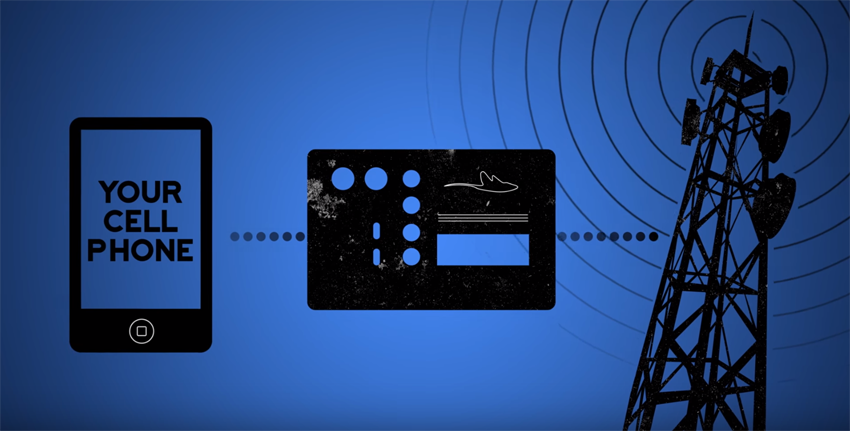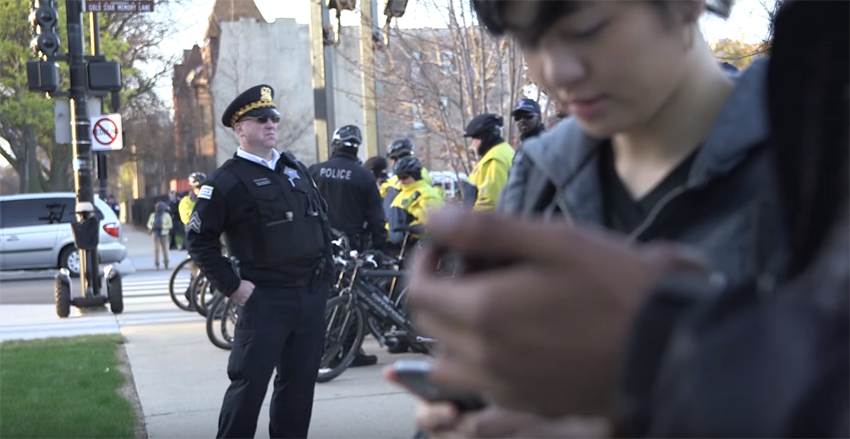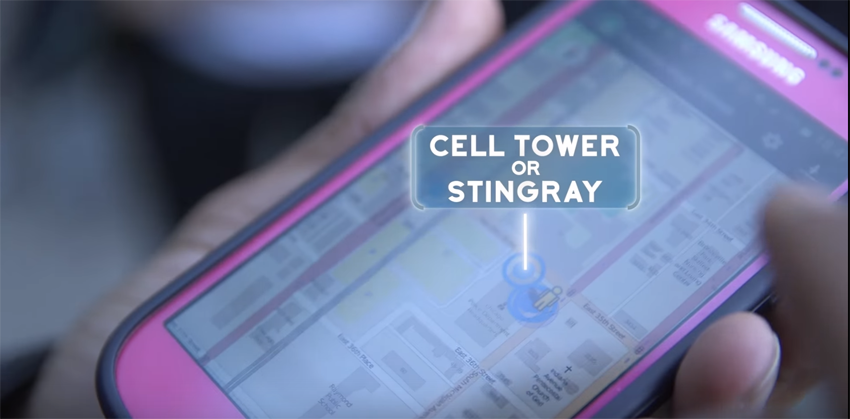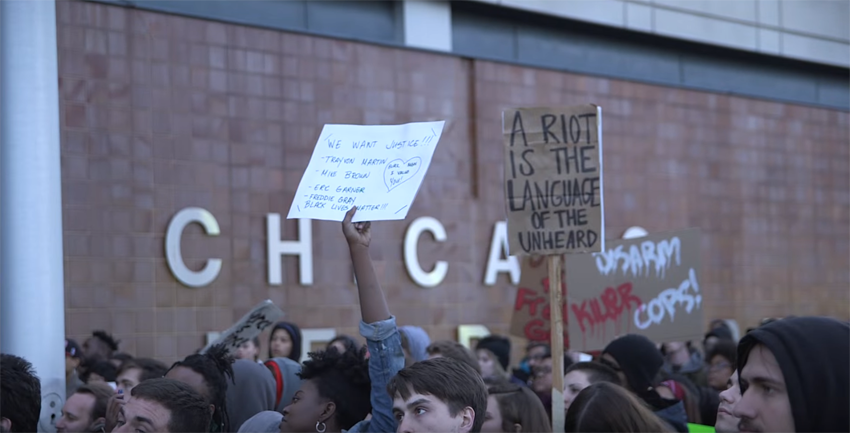In spite of its tech startup name, High Concept Laboratories is a gallery and arts service organization situated in a repurposed industrial warehouse in Pilsen. A large freight elevator, a remnant of the building’s industrial past, takes visitors up to the exhibition space where, on January 16, young people were mingling with older activists, sipping beer and wine to the tune of an experimental electro-jazz band. Despite the atmosphere and location, the piece being presented was not an art-house film, but rather the first installment of a political documentary web series focusing on privacy, civil liberties, and mass surveillance. The premiere of Rights Lab was about to begin.
Rights Lab is the result of a collaboration between Scrappers Film Group, a Chicago-based film production company, and Truthout, a progressive online publication. In the words of producer Yana Kunichoff, who was journalist-in-residence at the Weekly in early 2015, it “bridges the gap between the more artistic side of cinema verité and documentary journalism.”
“Part of Scrappers’ broad project right now is to do journalism, but in a way that fits better with the narrative and nature of what online video is [right now],” says Kunichoff, who has experience doing investigative journalism about social movements. “People aren’t going [online] to watch hour-and-a-half-long, feature-length documentaries.”
Format aside, the subject matter itself is something few people have been able to tackle successfully. “The topic area is something that we think is unique,” says Kunichoff. “ESPN…[does] this play-by-play of sports, but no one is doing that around protests and civil liberties issues, so we thought it would be great to open up a space like that at a time when protests are really changing the very nature of our society.”
The seven-minute video that premiered that night at High Concept Labs is centered around a question many activists in the digital age have asked each other: can the government spy on my phone? Unfortunately, according to the video, the answer is yes—but Jerry Boyle, a lawyer featured in the documentary, says, “Spying on them is a perfect response to them spying on you. That’s how we win.”

One of the key points of Rights Lab’s first episode is the proliferation of Stingrays, devices used by police departments to track and record what people are doing on their smartphones in the immediate vicinity. In the play-by-play format Kunichoff describes, the filmmakers follow a pair of protesters at a Black Lives Matter rally in Chicago, where they use an Android app called Android IMSI-Catcher Detector (AIMSICD) to monitor whether they are themselves being monitored. Unsurprisingly, the app does indeed pick up several surveillance devices in the area that could be Stingrays, which move along with the crowd in police cars as people march down the street from the police station.
However, according to activist and technical analyst Freddy Martinez, the Chicago Police Department would not even acknowledge that they possess such devices until he and an attorney friend of his decided to sue them for the information. Even today, what exactly the CPD uses Stingrays for is largely up in the air. “We do know that they have bought this equipment to monitor protests, but there’s no specific use for this,” explains Martinez, who was introduced to the Rights Lab team through a mutual friend and quickly became involved in the project.
While such high-tech tracking devices may seem intimidating to activists, Martinez is confident activists have what it takes to easily counter such police methods. “I think people fetishize [technology] a little bit, but it doesn’t give you anything new. Activists just need to understand the city they live in and the tactics that the police use. Technology isn’t going to provide any of that—it’s just a tool.”

With such reassurances, Rights Lab demonstrates that working within a field of public protest where activists are aware that the city is tracking their every move can be an opportunity for innovation. In a panel discussion after the film featuring Martinez, Boyle, and activist Todd St. Hill from black youth activist organization BYP100, Boyle recounted how BYP100 held a march that distracted the police from an action happening at the Chicago Patrol League’s credit union. Protesters were thus able to shut down the credit union with cops caught off guard.
“Bringing the War on Drugs and the War on Terror home helps [the police] to control people,” St. Hill said at the panel discussion. “It helps them to contain people’s dissent.” But because of the increasingly important role of technology in activism, he says that it is becoming clearer than ever before that “there is a role for everyone in these movements.”
According to Kunichoff, Rights Lab is designed to motivate people of all walks of life to stand up to systems of mass surveillance: “I think it gives people information about different groups and activities that are going on. The fact that we did the first episode around an app, which is something that anyone can download and use, means that there is a real practical application here.” As far as the series’ intended audience, Kunichoff says, “We’re going for a broad audience that we can introduce these concepts to and also interest them in a way that reading about [these issues] wouldn’t.”

Despite the lofty goals of this collaborative effort, even Kunichoff admits that Rights Lab’s viewership thus far has come from a rather specific segment of the population. “The audience itself has turned out to be heavily activist-driven, and that’s partially because of who Truthout’s readership is, but I think the people who came to the event were actually a pretty good smattering of people.”
The next installment of Rights Lab is due to premier on February 27th at 7 pm at the Experimental Station and will focus on drone use. As the next few monthly episodes are released, it remains to be seen whether Rights Lab will reach as broad a constituency as it hopes. So far, the first episode only has about 1,350 views on YouTube, although these numbers are likely to grow as the series gains publicity. The project is a unique amalgamation of art, investigative journalism, and documentary filmmaking, and it will likely continue to turn heads in the activist community in Chicago. If they want to create waves outside of this specific niche, the Rights Lab team must overcome these formidable challenges of visibility and ensure that, in the spirit of activism in the digital age, the whole world will be watching.

